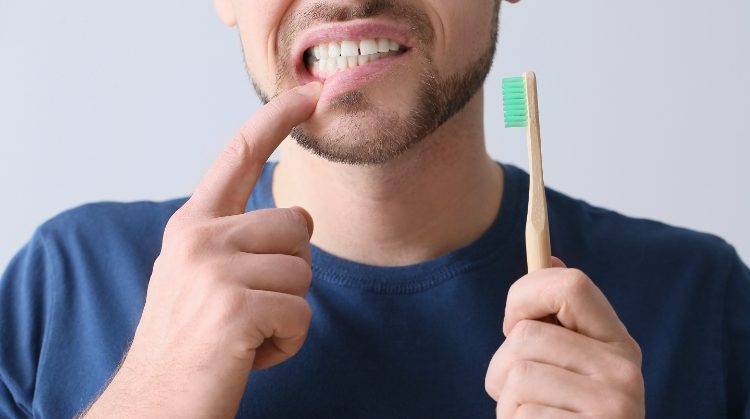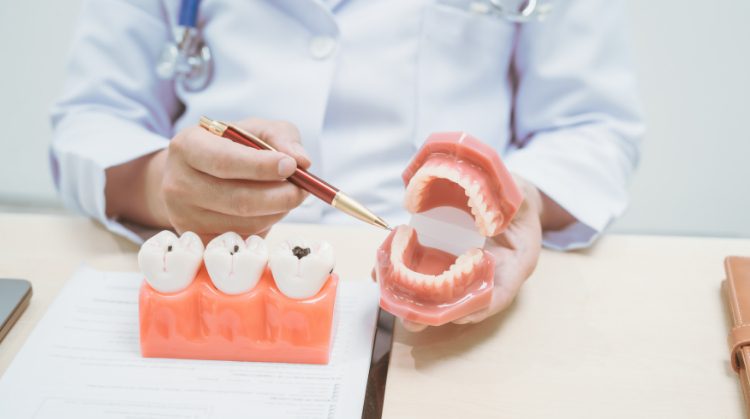
If your gums are bleeding, you have gum disease. There’s no way to sugar coat it. You may be in the early stages of gum disease, which means the damage that is occurring to your teeth and gums is not yet permanent, but it’s vital you have your teeth and gums evaluated if any bleeding is occurring.
The American Academy of Periodontology says that up to 80 percent of the U.S. population has some degree of gum disease and only 10 percent are even aware of it! If these numbers don’t concern you, they should. Gum disease is the No. 1 cause of tooth loss, and the disease progresses very rapidly from the bleeding-gum stage to the tooth-loss stage.
Stages of Gum Disease
The first stage of gum disease is called gingivitis. At this stage, the gums have become inflamed from plaque buildup. The most common symptoms are bleeding gums and bad breath. At this stage the damage is reversible and the disease is easily treated with professional dental care.
The next stage of gum disease is called early periodontitis. Bleeding gums and bad breath will often be accompanied by receding gums, and treatment may or may not be able to reverse the damage that has been done.
The third and final stage of gum disease is advanced periodontitis. At this point the gums are infected and receding significantly. Often it has become difficult to chew at this stage and the damage is evident to the naked eye and often permanent. Without immediate treatment, teeth will begin to fall out.
What Happens After Tooth Loss
The problem with tooth loss is that it isn’t just an aesthetic concern in terms of a space in your smile. Sure, a missing tooth can be embarrassing and make it harder to eat or speak depending on the location, but over time, a missing tooth can actually make you look older! As the space in the gums remains empty, the jaw bone stops being stimulated and begins to dissolve. This can cause a shift in not only your bite, but also your face.
If your gums are bleeding when you floss or brush and you are ready to stop gum disease in its tracks before it causes permanent damage, call Dr. Norman today at (425) 212-1986.



